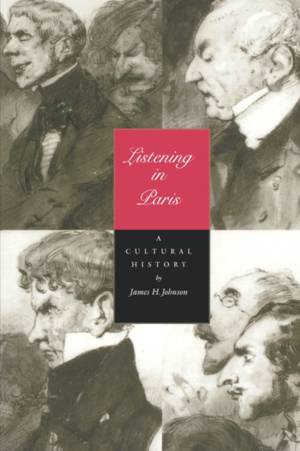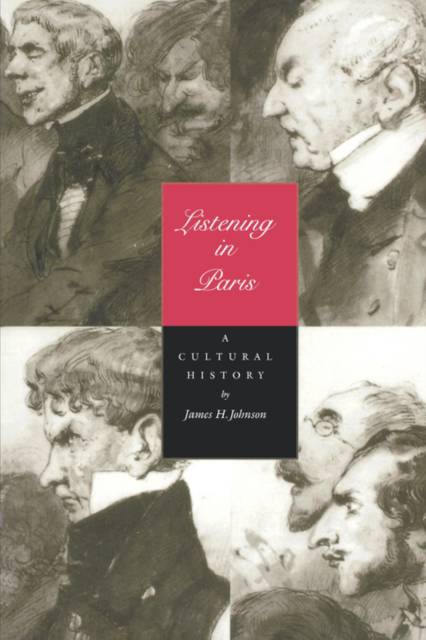
Door een staking bij bpost kan je online bestelling op dit moment iets langer onderweg zijn dan voorzien. Dringend iets nodig? Onze winkels ontvangen jou met open armen!
- Afhalen na 1 uur in een winkel met voorraad
- Gratis thuislevering in België vanaf € 30
- Ruim aanbod met 7 miljoen producten
Door een staking bij bpost kan je online bestelling op dit moment iets langer onderweg zijn dan voorzien. Dringend iets nodig? Onze winkels ontvangen jou met open armen!
- Afhalen na 1 uur in een winkel met voorraad
- Gratis thuislevering in België vanaf € 30
- Ruim aanbod met 7 miljoen producten
Zoeken
Omschrijving
Beginning with the simple question, "Why did audiences grow silent?" Listening in Paris gives a spectator's-eye view of opera and concert life from the Old Regime to the Romantic era, describing the transformation in musical experience from social event to profound aesthetic encounter. James H. Johnson recreates the experience of audiences during these rich decades with brio and wit. Woven into the narrative is an analysis of the political, musical, and aesthetic factors that produced more engaged listening. Johnson shows the gradual pacification of audiences from loud and unruly listeners to the attentive public we know today.
Drawing from a wide range of sources--novels, memoirs, police files, personal correspondence, newspaper reviews, architectural plans, and the like--Johnson brings the performances to life: the hubbub of eighteenth-century opera, the exuberance of Revolutionary audiences, Napoleon's musical authoritarianism, the bourgeoisie's polite consideration. He singles out the music of Gluck, Haydn, Rossini, and Beethoven as especially important in forging new ways of hearing. This book's theoretical edge will appeal to cultural and intellectual historians in many fields and periods.
Drawing from a wide range of sources--novels, memoirs, police files, personal correspondence, newspaper reviews, architectural plans, and the like--Johnson brings the performances to life: the hubbub of eighteenth-century opera, the exuberance of Revolutionary audiences, Napoleon's musical authoritarianism, the bourgeoisie's polite consideration. He singles out the music of Gluck, Haydn, Rossini, and Beethoven as especially important in forging new ways of hearing. This book's theoretical edge will appeal to cultural and intellectual historians in many fields and periods.
Specificaties
Betrokkenen
- Auteur(s):
- Uitgeverij:
Inhoud
- Aantal bladzijden:
- 363
- Taal:
- Engels
- Reeks:
- Reeksnummer:
- nr. 21
Eigenschappen
- Productcode (EAN):
- 9780520206489
- Verschijningsdatum:
- 4/12/1996
- Uitvoering:
- Paperback
- Formaat:
- Trade paperback (VS)
- Afmetingen:
- 150 mm x 228 mm
- Gewicht:
- 526 g

Alleen bij Standaard Boekhandel
+ 118 punten op je klantenkaart van Standaard Boekhandel
Beoordelingen
We publiceren alleen reviews die voldoen aan de voorwaarden voor reviews. Bekijk onze voorwaarden voor reviews.











